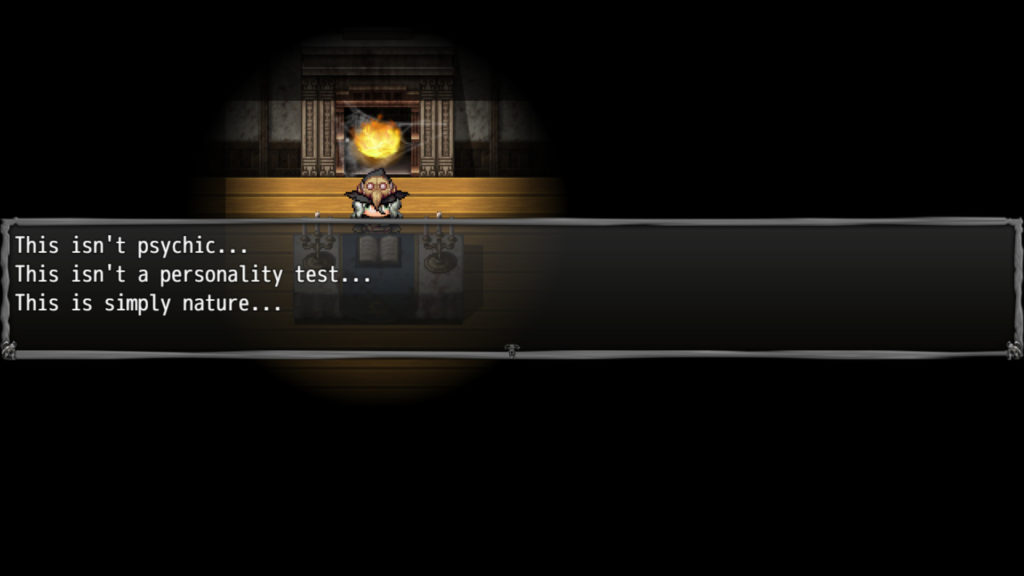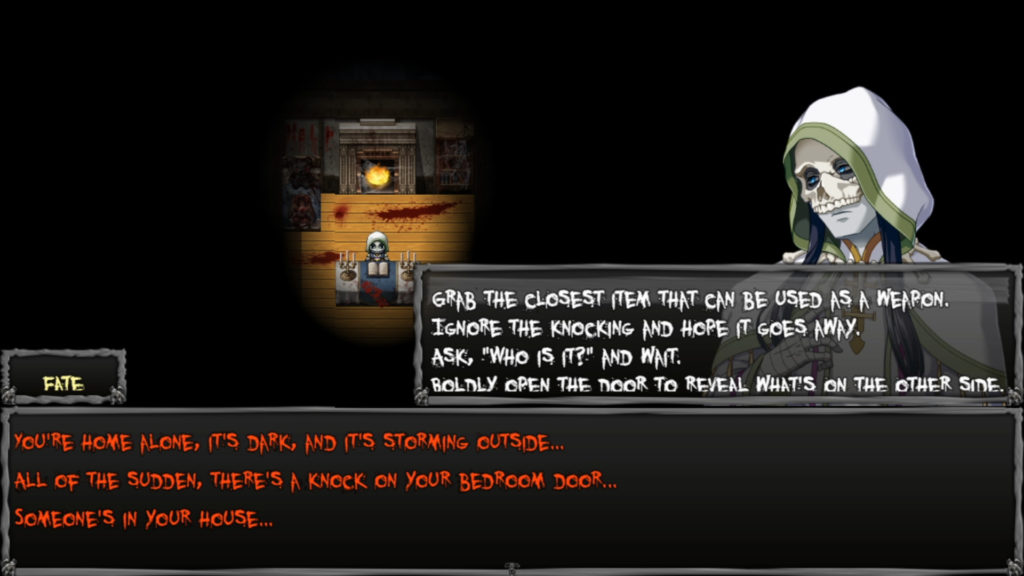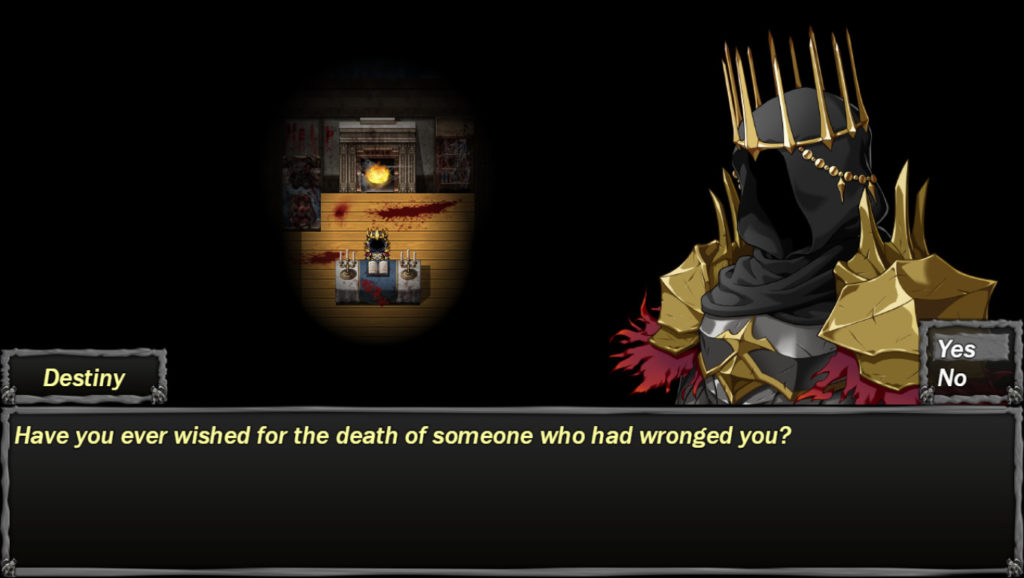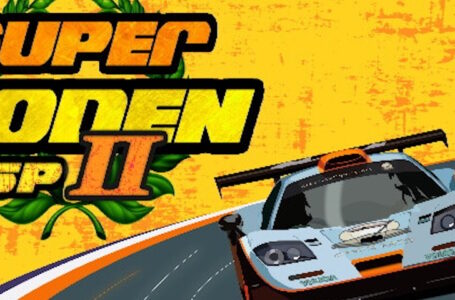The Test is not your average horror game series
There are some really interesting things being done in the indie horror space, both by western and eastern developers. What’s particularly interesting about a lot of these games is how they manage to do a lot with a little — and The Test series from Randumb Studios is an excellent example of this.
To call The Test and its two sequels “horror games” is, strictly speaking, inaccurate, since all they do is use the trappings of a horror game to lure you in and then do something rather unexpected. But given that a lot of people are likely to jump into The Test on the assumption that it’s going to creep them out in some way, I’d say we can safely include them in a discussion of the genre.
Trouble is, discussing these games in any great detail is quite difficult, because part of their very nature is that they are intended to be personal experiences that enable you to reflect on things in your own unique way. That is the thing that makes these three games — and much of the other work by Randumb Studios — particularly interesting, though, so we’ll do our best not to spoil too much about the experience.

Let’s begin with the first game in the trilogy, simply named The Test. In this game, the screen fades in and you’re in a bloodstained, darkened room lit only by a fireplace, and you’re face-to-face with a character dressed in mystical garb. They inform you that they’re going to ask you a series of questions to which you can answer “yes” or “no”, and from there you might come to understand… something.
The reasoning behind The Test is never given, but it’s clear that Randumb Studios have something in mind for all their work as a grand project — more on that in a moment. There’s definitely some sort of narrative context to what is going on, but it almost doesn’t matter; it doesn’t take long to get thoroughly enraptured by the relentless stream of questions coming your way, and what they might all mean.
The questions are enormously varied, featuring a variety of personal, introspective and humorous situations to ponder. The Test claims to be keeping track of all manner of things in the background, including not only the choices you make but also how much you hesitate over your answers, but the best way to approach the game is simply to let the situation unfold naturally. You are, after all, simply sitting at a computer answering “yes” and “no” questions, so there’s no means of actually being judged by a real person, is there? Of course not.
Upon reaching the conclusion of The Test, your questioner will provide you with an interpretation of your results. This isn’t a particularly scientific (or indeed pseudoscientific) interpretation or anything — no Myers-Briggs personality types here, at least not made explicit — rather, it ends up being the sort of advice you’d get if you’d just poured your heart out to someone you trust. Assuming you answered the questions throughout The Test honestly, you’ll find yourself getting some surprisingly accurate advice that, in many cases, you’ll have already been aware of, but perhaps hadn’t acknowledged or wanted to face up to.
The Test isn’t designed to make you feel bad; that much is very clear, despite its horror game trappings. Instead, it seemingly seeks to provide affirmations and appreciation of your positive qualities, while gently encouraging you to confidently and fearlessly pay attention to your own flaws. We all have flaws, after all; it’s how we deal with them that helps define us as a person.
At the conclusion of The Test, you’re provided with a “secret word” that you’re supposed to keep a note of. Randumb Studios encourage everyone to share their word in the comments and reviews on the game, as supposedly this will help inform their future projects in some way. Their grand ambition is for players to be able to take their secret words from all their choice-based games, not just The Test trilogy, and plug them into an upcoming RPG called Chasing Demons, with the story, characters and game world being affected in some way by those words.
It’s a very ambitious idea, for sure, and it remains to be seen if Randumb Studios will be able to pull it off — but even if they don’t, The Test certainly makes for a fascinating experience, and it’s hard not to jump right into the subsequent game, The Test: Hypothesis Rising immediately afterwards.

This game follows the same format, only this time you’re faced with a different character. This time, they are named as “Fate”. The horror angle is played up considerably in this one, with a deliberately stylised “bloody” font and occasional mild visual jumpscares — though for those of a nervous disposition, these aren’t accompanied by the usual loud noises, so are just mildly unsettling rather than outright terrifying.
Like his precursor, Fate asks you a series of questions, initially expecting “yes” or “no” answers but subsequently moving onto hypothetical “would you rather” kinds of situations. Once again, there’s a mix of the superficial, personal, introspective and humorous — and again, there’s the feeling that the game itself is “watching” you to a certain degree, tailoring its questions and situations to your responses.
Fate comes across as an oddly likeable character prone to sarcastic quips in The Test: Hypothesis Rising, though there are times when you might question whether you’re actually hearing Fate themselves talk, or if the author is addressing you directly. If you’ve come directly from the first The Test, as the game recommends you do, there are a number of amusing callbacks along the way that will put a smile on your face and help set you at ease in this rather unusual situation.
Once again, when the questioning ends, Fate will provide you with a rundown of their interpretations of your answers. Depending on how you responded, your results may be similar or different to how The Test concluded for you — and the game makes it clear that neither way or the other is “correct”. If you happen to get a similar response, that’s something which must be true; if you get a different response, it’s a sign that you have a number of layers to your personality that are worth exploring.

Finally, The Test: Final Revelation puts you face-to-face with Destiny, who has an annoying habit of speaking in arrhythmic rhyme when trying to be dramatic, but who changes cadence considerably once he starts interrogating you much like your two predecessors. This time around, Destiny is set up to feel almost antagonistic in nature, seeking to bleed your soul dry of the truths hidden within — but once again, once you find yourself getting involved in answering the questions, it’s hard not to feel like the game is encouraging you rather than judging you.
The twist this time around is that you’re presented with a number of picture-themed questions where you’re encouraged to think about the emotion that the image suggests, as well as picking one of several titles for the picture in question. Honestly, this sequence felt like it dragged a bit in comparison to the rest of the series, and the more specific questions about hypothetical situations were much more interesting and enjoyable to ponder — but interpreting abstract images is an interesting and important part of psychology also, so it was probably worth including as yet another means of analysing player responses.
The Test: Final Revelation concludes with a narrative sequence that is clearly intended to be a teaser for the aforementioned Chasing Demons, featuring Choice (the previously unnamed character from The Test), Fate and Destiny having a bit of an altercation. Although we’ve encountered all three of these characters in The Test trilogy as a whole, this sequence feels a tad out of place, and while it certainly provides a bit of intrigue for Chasing Demons, it feels like it would probably have been better to leave it out, since it doesn’t really “explain” anything as such.
Likewise, the somewhat extensive message from the developers — including some slightly over-the-top gushing towards YouTuber Markiplier, who featured the series on his channel at some point — feels like it would have perhaps been better served as a blog or forum post, but it ultimately doesn’t matter too much. The three The Test games are designed in such a way to make you receptive and understanding towards such messages, so in some ways it perhaps makes sense to include messages like this as part of the game itself.
The Test is a fascinating series that is well worth experiencing; each individual entry is less than £2 and takes maybe 30-45 minutes to work your way through, depending on how quickly you answer the questions. The final results you get from each game are thought-provoking and worth reflecting on even if you have no intention of moving on to plug your secret words into Randumb Studios’ other games, and this idea of “video game as therapy” is definitely a solid one that is probably worth exploring further.
Just remember to be honest throughout; I can’t help but feel like the impact of these games would be significantly diminished if you played them in an attempt to somehow “optimise” your results. Ultimately you’re only betraying yourself if you do that — while the games certainly do interpret your responses in ways that seem surprisingly accurate, at no point will you feel judged, so answer with confidence, even on the more difficult questions that you might not feel terribly comfortable speaking frankly about.
Yes, even the one about punching a nun.
Oh, and if you were wondering, my results were Chaos, Discover and Self-Love.
The Test trilogy is available now on Steam.
Join The Discussion
Rice Digital Discord
Rice Digital Twitter
Rice Digital Facebook
Or write us a letter for the Rice Digital Friday Letters Page by clicking here!
Disclosure: Some links in this article may be affiliate links, which means we may earn a small commission if you make a purchase after clicking on them. This is at no additional cost to you and helps support Rice Digital!
- Letter from the Editor: passing the torch - June 30, 2023
- Super Woden GP 2 is looking promising - June 30, 2023
- Inti Creates is making a 32 bit-style Love Live action platformer - June 26, 2023







